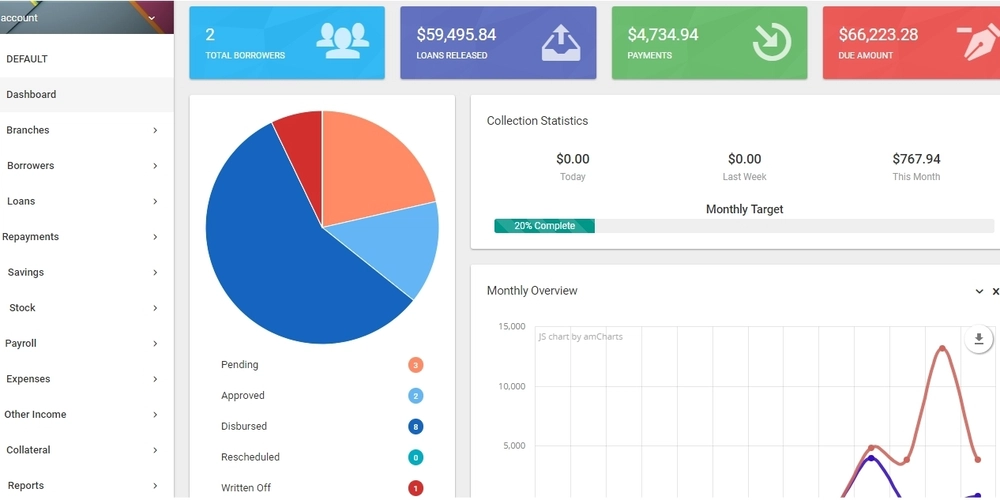DBMS: Weighing the Pros and Cons
So, you're thinking about how to manage all that precious data, huh? Maybe your spreadsheets are starting to feel like unruly jungles, or you're dreaming of a more organized way to keep track of things. That's where Database Management Systems (DBMS) come into play. Think of a DBMS as a super-organized digital filing cabinet, but way more powerful. But like any powerful tool, it comes with both shiny benefits and a few things to keep in mind. Let's dive into the advantage and disadvantage of DBMS in a way that doesn't feel like you're reading dry dbms notes. The "Yay!" Side: Advantages of Using a DBMS Imagine you have a massive library. Without a proper system, finding a specific book would be a nightmare! A DBMS acts like that librarian, offering some fantastic perks: Organized Chaos (Data Organization): A DBMS structures your data logically, making it easier to understand, navigate, and retrieve. No more sifting through endless rows and columns! Keeping Things Consistent (Data Integrity): Ever had different versions of the same information floating around? A DBMS helps ensure data accuracy and consistency by enforcing rules and reducing redundancy. It's like having a single source of truth. Sharing is Caring (Data Sharing): Multiple users can access and share the same data simultaneously without creating chaos. Think of it as a shared document that everyone can work on efficiently. Safety First (Data Security): DBMS provides mechanisms to control who can access what data. You can set up passwords and permissions, keeping sensitive information safe from prying eyes. It's like having a security guard for your digital vault. Finding Things Fast (Efficient Data Access): Need to find all customers who live in Delhi and bought a specific product last month? A DBMS allows you to perform complex queries and retrieve information quickly and efficiently. Say goodbye to manual searching! Recovering from Oops Moments (Data Backup and Recovery): Accidents happen! A good DBMS includes features for backing up your data, so if something goes wrong (like a system crash), you can restore your information without losing everything. It's like having a digital safety net. These advantages of DBMS make it an invaluable tool for businesses and organizations of all sizes, helping them make better decisions and operate more efficiently. The "Hmm, Not So Fast" Side: Disadvantages of Using a DBMS While a DBMS offers a ton of benefits, it's also important to be aware of the potential downsides, our disadvantage of DBMS list: The Initial Investment (Cost): Implementing a DBMS can involve significant upfront costs for software, hardware, and personnel training. It's like buying a sophisticated piece of equipment – it's not always cheap. It's Not Always Simple (Complexity): Setting up, configuring, and maintaining a DBMS can be complex, requiring specialized knowledge and skilled professionals. It's not always as straightforward as using a spreadsheet. System Vulnerabilities (Security Risks): While a DBMS offers security features, it can also be a target for cyberattacks. If the system isn't properly secured, a breach could lead to significant data loss. It's like having a strong lock, but you still need to be careful. Performance Hiccups (Performance Issues): If not designed and optimized correctly, a DBMS can sometimes experience performance issues, especially with large amounts of data or many concurrent users. It's like a busy highway – sometimes there's traffic. The Human Factor (Management Overhead): Managing a DBMS requires ongoing effort, including backups, security updates, and performance tuning. It's not a set-it-and-forget-it solution. Potential for Data Dependence: Once you rely heavily on a specific DBMS, migrating to a different system can be a complex and time-consuming process. It's like getting locked into a particular ecosystem. Understanding these potential dbms notes on the disadvantages is crucial for making an informed decision about whether a DBMS is the right solution for your needs. The Verdict: Weighing the Scales Ultimately, the decision of whether to use a DBMS boils down to carefully weighing the advantages and disadvantages of DBMS in the context of your specific requirements. For most organizations dealing with significant amounts of data that need to be organized, secure, and efficiently accessed, the benefits often outweigh the drawbacks. However, it's essential to understand the potential challenges and plan accordingly to mitigate them. Think of it like choosing the right vehicle. A car offers incredible advantages for transportation, but it also comes with costs like fuel and maintenance. Similarly, a DBMS offers powerful data management capabilities, but requires an investment of resources and expertise. By understanding both sides of the coin, you can make the best choice for your data journey

So, you're thinking about how to manage all that precious data, huh? Maybe your spreadsheets are starting to feel like unruly jungles, or you're dreaming of a more organized way to keep track of things. That's where Database Management Systems (DBMS) come into play. Think of a DBMS as a super-organized digital filing cabinet, but way more powerful. But like any powerful tool, it comes with both shiny benefits and a few things to keep in mind. Let's dive into the advantage and disadvantage of DBMS in a way that doesn't feel like you're reading dry dbms notes.
The "Yay!" Side: Advantages of Using a DBMS
Imagine you have a massive library. Without a proper system, finding a specific book would be a nightmare! A DBMS acts like that librarian, offering some fantastic perks:
Organized Chaos (Data Organization): A DBMS structures your data logically, making it easier to understand, navigate, and retrieve. No more sifting through endless rows and columns!
Keeping Things Consistent (Data Integrity): Ever had different versions of the same information floating around? A DBMS helps ensure data accuracy and consistency by enforcing rules and reducing redundancy. It's like having a single source of truth.
Sharing is Caring (Data Sharing): Multiple users can access and share the same data simultaneously without creating chaos. Think of it as a shared document that everyone can work on efficiently.
Safety First (Data Security): DBMS provides mechanisms to control who can access what data. You can set up passwords and permissions, keeping sensitive information safe from prying eyes. It's like having a security guard for your digital vault.
Finding Things Fast (Efficient Data Access): Need to find all customers who live in Delhi and bought a specific product last month? A DBMS allows you to perform complex queries and retrieve information quickly and efficiently. Say goodbye to manual searching!
Recovering from Oops Moments (Data Backup and Recovery): Accidents happen! A good DBMS includes features for backing up your data, so if something goes wrong (like a system crash), you can restore your information without losing everything. It's like having a digital safety net.
These advantages of DBMS make it an invaluable tool for businesses and organizations of all sizes, helping them make better decisions and operate more efficiently.
The "Hmm, Not So Fast" Side: Disadvantages of Using a DBMS
While a DBMS offers a ton of benefits, it's also important to be aware of the potential downsides, our disadvantage of DBMS list:
The Initial Investment (Cost): Implementing a DBMS can involve significant upfront costs for software, hardware, and personnel training. It's like buying a sophisticated piece of equipment – it's not always cheap.
It's Not Always Simple (Complexity): Setting up, configuring, and maintaining a DBMS can be complex, requiring specialized knowledge and skilled professionals. It's not always as straightforward as using a spreadsheet.
System Vulnerabilities (Security Risks): While a DBMS offers security features, it can also be a target for cyberattacks. If the system isn't properly secured, a breach could lead to significant data loss. It's like having a strong lock, but you still need to be careful.
Performance Hiccups (Performance Issues): If not designed and optimized correctly, a DBMS can sometimes experience performance issues, especially with large amounts of data or many concurrent users. It's like a busy highway – sometimes there's traffic.
The Human Factor (Management Overhead): Managing a DBMS requires ongoing effort, including backups, security updates, and performance tuning. It's not a set-it-and-forget-it solution.
Potential for Data Dependence: Once you rely heavily on a specific DBMS, migrating to a different system can be a complex and time-consuming process. It's like getting locked into a particular ecosystem.
Understanding these potential dbms notes on the disadvantages is crucial for making an informed decision about whether a DBMS is the right solution for your needs.
The Verdict: Weighing the Scales
Ultimately, the decision of whether to use a DBMS boils down to carefully weighing the advantages and disadvantages of DBMS in the context of your specific requirements. For most organizations dealing with significant amounts of data that need to be organized, secure, and efficiently accessed, the benefits often outweigh the drawbacks. However, it's essential to understand the potential challenges and plan accordingly to mitigate them.
Think of it like choosing the right vehicle. A car offers incredible advantages for transportation, but it also comes with costs like fuel and maintenance. Similarly, a DBMS offers powerful data management capabilities, but requires an investment of resources and expertise. By understanding both sides of the coin, you can make the best choice for your data journey









































































































































































![[The AI Show Episode 144]: ChatGPT’s New Memory, Shopify CEO’s Leaked “AI First” Memo, Google Cloud Next Releases, o3 and o4-mini Coming Soon & Llama 4’s Rocky Launch](https://www.marketingaiinstitute.com/hubfs/ep%20144%20cover.png)




























































































































![[DEALS] The All-in-One Microsoft Office Pro 2019 for Windows: Lifetime License + Windows 11 Pro Bundle (89% off) & Other Deals Up To 98% Off](https://www.javacodegeeks.com/wp-content/uploads/2012/12/jcg-logo.jpg)



























![Is this too much for a modular monolith system? [closed]](https://i.sstatic.net/pYL1nsfg.png)






















































































































_Andreas_Prott_Alamy.jpg?width=1280&auto=webp&quality=80&disable=upscale#)
































































































![What features do you get with Gemini Advanced? [April 2025]](https://i0.wp.com/9to5google.com/wp-content/uploads/sites/4/2024/02/gemini-advanced-cover.jpg?resize=1200%2C628&quality=82&strip=all&ssl=1)













![Apple Shares Official Trailer for 'Long Way Home' Starring Ewan McGregor and Charley Boorman [Video]](https://www.iclarified.com/images/news/97069/97069/97069-640.jpg)
![Apple Watch Series 10 Back On Sale for $299! [Lowest Price Ever]](https://www.iclarified.com/images/news/96657/96657/96657-640.jpg)
![EU Postpones Apple App Store Fines Amid Tariff Negotiations [Report]](https://www.iclarified.com/images/news/97068/97068/97068-640.jpg)
![Apple Slips to Fifth in China's Smartphone Market with 9% Decline [Report]](https://www.iclarified.com/images/news/97065/97065/97065-640.jpg)




































































































































